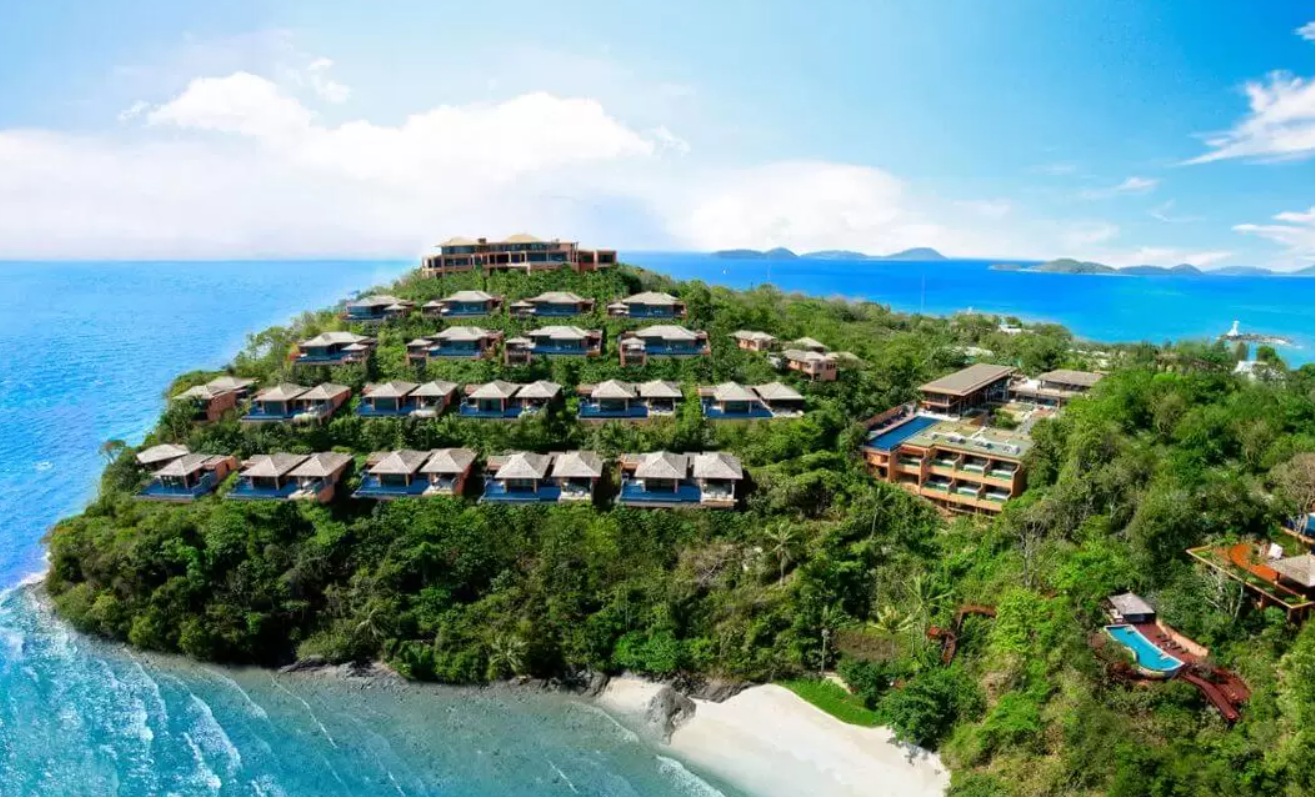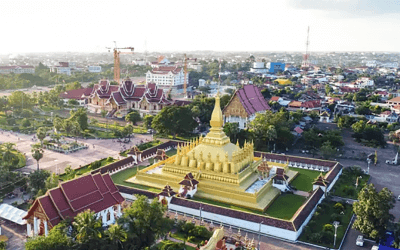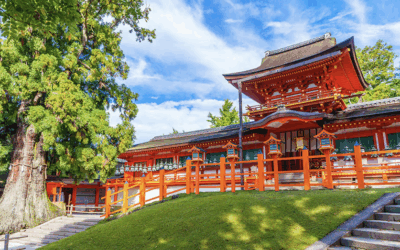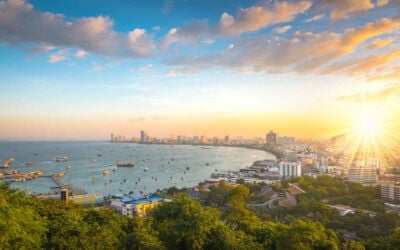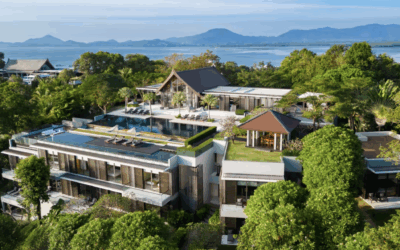Last updated March 30th, 2024.
Asia isn’t an easy continent for immigration. In fact, Thailand’s residence by investment program is one the easiest long-term visas in Asia.
Sure, if you have employment lined up, most countries in Asia will give you a work visa. But that requires keeping a local job. Likewise, retirement visas have a minimum age for applicants.
Thai residence by investment is unique since practically anyone can get one regardless of employment, spouse, age, or nationality. You only must have enough money.
Thailand’s property investment visa certainly isn’t the region’s cheapest option. Getting approved costs ten million baht (around US$300,000) which is a more expensive price compared to Malaysia’s MM2H program, for example.
Nonetheless, getting a Thai investment residence provides lifetime access to one of Asia’s most centrally located and dynamic economies.
Of course, it also lets you live in Thailand permanently as well if that’s your main goal.
I’m not a lawyer – nor do you need to be one in order to merely apply for a visa. Yet I’ve personally gone through the Thailand residence by investment process myself and feel qualified to speak on the matter as a result of my own personal experience.
This article covers the cost of getting a golden visa in Thailand, how to qualify, along with a summary of the process.
How to Qualify for Thailand Residence by Investment
You can either buy real estate, put money into a fixed deposit at a Thai bank in Thailand, or purchase government bonds to meet the criteria for Thailand’s investor visa program.
In total, the investment size must amount to at least 10 million baht in order to qualify.
A combination of those assets also works. You can purchase a 5 million baht condo and put another 5 million in a term deposit. Buying multiple properties works too – just as long as you meet the 10 million baht minimum.
With all of that said, most people choose to buy a condo in Thailand in order to qualify for the investment visa program.
Note that you must purchase a new build condominium unit directly from a developer. Secondhand properties aren’t covered under the visa program. Foreigners cannot directly own land or houses in Thailand either.
Furthermore, ensure two important things when transferring the money to buy property in Thailand.
Payment must first be transferred from abroad, directly from a foreign account in your name, to the seller’s Thai account. The money can’t be sourced from within Thailand. It can’t be sent through any intermediaries besides yourself and the developer either.
Second, make sure the resulting currency exchange is done in Thailand. Don’t let your bank convert the money – sending foreign currency and having the seller’s bank exchange it into baht is crucial.
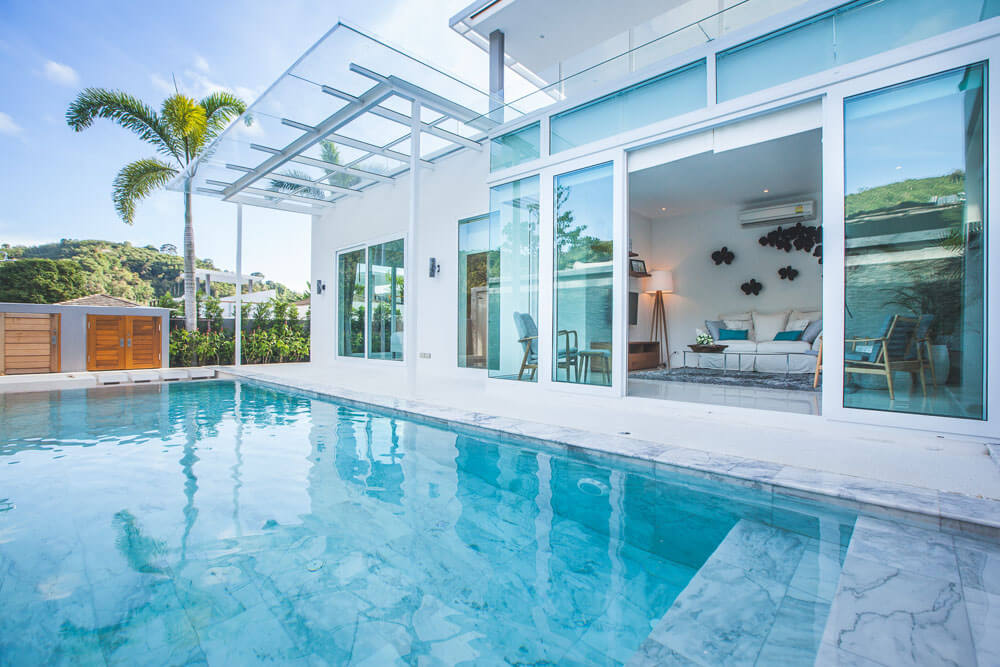
10 million baht is enough for a Thai golden visa, along with approximately 75 square meters of property in Bangkok. Or a condo around the same size with an ocean view in Phuket.
Gathering the Documents
You must obtain several documents before applying for a Thailand investment visa. Many of these are easy to get while others are a headache.
First, you need a foreign exchange transaction form (FET) from the seller’s bank. FETs serve as proof that you transferred 10 million baht from abroad. Any reputable real estate developer should do the legwork and easily give you the form.
Next, you must get a government appraisal which involves going to the city’s (or in in Bangkok, the district’s) land office. Land offices already have them on record and can usually provide it within one day.
Last, you’ll need the condo’s residence book, its title deed, and transfer tax receipt. The land office should have already given you those three documents when you initially bought the condo.
The requirements are more straightforward if you put ten million baht into a fixed deposit. Just show an FET and a bank statement proving your investment.
Apart from the obvious things like passport pictures along with a few copies, you’re now ready to apply for a Thai investor visa.
Renewing Your Golden Visa: Don’t Let it Expire!
Unfortunately, the bureaucracy doesn’t end after you’re approved for a Thai investment visa. You’ll first receive a visa with an initial 90-day validity using the process described above.
Afterwards, you must take the same set of documents to immigration again in order to within two weeks of its expiration date. You’ll then get the full one-year visa.
Thailand’s investor visa is a de-facto permanent residence. You can indefinitely extend it for another one-year as long as you maintain the original ten million baht worth of real estate, bonds, or deposits.
However, you still have to ensure your visa is maintained. It requires showing up at the immigration office annually at approximately the same time each year, within two weeks of your visa’s expiration date.
Your investment residence visa will expire if it’s not extended again each year before its expiration date.
This might prove difficult for anyone who travels a lot and doesn’t plan on living in Thailand full-time. Not everyone can be in Thailand for a specific two-week period each year.
One more thing: Thailand does have a history of changing the criteria for its investor visa. However, they also have a record of “grandfathering in” those who were approved under any previous requirements.
For example, the investment visa originally had a three million baht minimum several decades ago. It was changed to 10 million baht in back the early 2000s.
However, some people have lived in Thailand ever since then by extending their original visa with the initial requirements.
It’s a whole different story if you let your visa expire though. You’ll have to start from the very beginning and meet any new criteria.
Is Thai Residency by Investment Right for You?
Quite frankly, Thailand’s property investment visa isn’t a good deal when compared to other countries in Southeast Asia.
That’s not simply an opinion. Let’s quickly look at some other golden visa programs in nearby Asian countries, and compare them with Thailand’s from an objective point of view
Malaysia and its MM2H program have three different options. They’ll give you a 5-year renewable visa for RM500,000 (about $100,000) in a term deposit, a 15-year visa for RM2 million ($400,000), or immediate permanent residence for RM5 million ($1 million).
Plus, unlike in Thailand, other countries in Asia allow foreigners to legally own land under their own name.
Likewise, the Philippines has a retirement visa that only requires US$50,000 deposited at a local bank, with an age requirement of 50 years old.
Granted, not everyone wants to live in Malaysia or the Philippines full-time. Thailand has a unique charm to it.
Is your main goal to live in Thailand permanently? Are you below the minimum retirement age of 50? If you answered “yes” to both questions, Thai residency by investment is a clear choice.
Otherwise, consider looking at other options besides the Thai investor visa if you simply want a second residency in Asia but don’t have a specific country in mind.
FAQs
How Much Does Thai Residence by Investment Cost?
To qualify for Thailand's investor visa, you'll need to purchase real estate or government bonds worth at least 10 million baht in total.
Can I Qualify for the Visa with Multiple Assets?
Yes, you can buy several smaller condos or a combination of bonds and real estate. The total purchase price must add up to 10 million baht though.
When Does the Thai Investment Visa Expire?
The visa remains valid for a year and can be renewed indefinitely as long as the investment is maintained.
However, to keep your visa renewed, it does mean you'll have to visit the immigraiton office at roughly the same time of year, every year.

